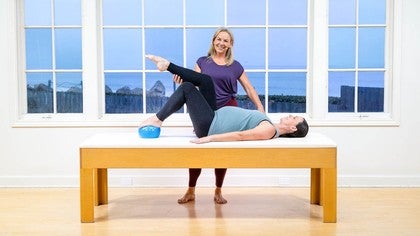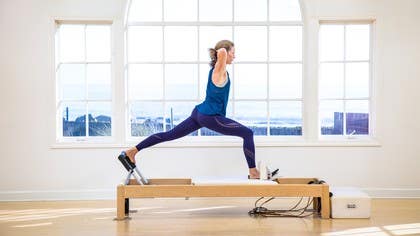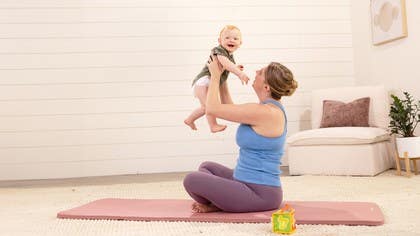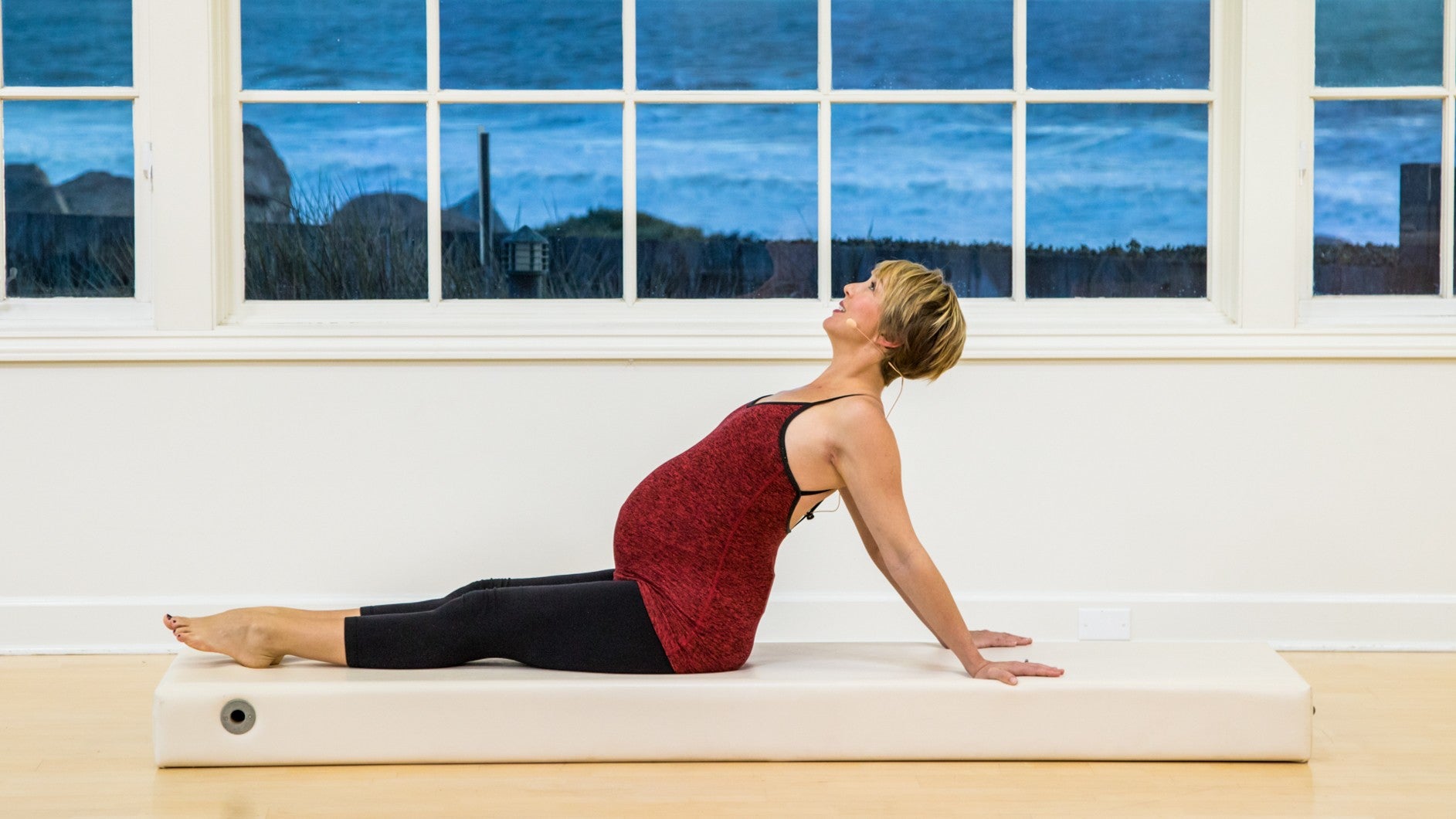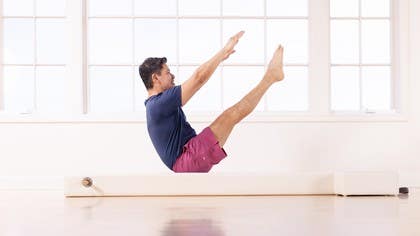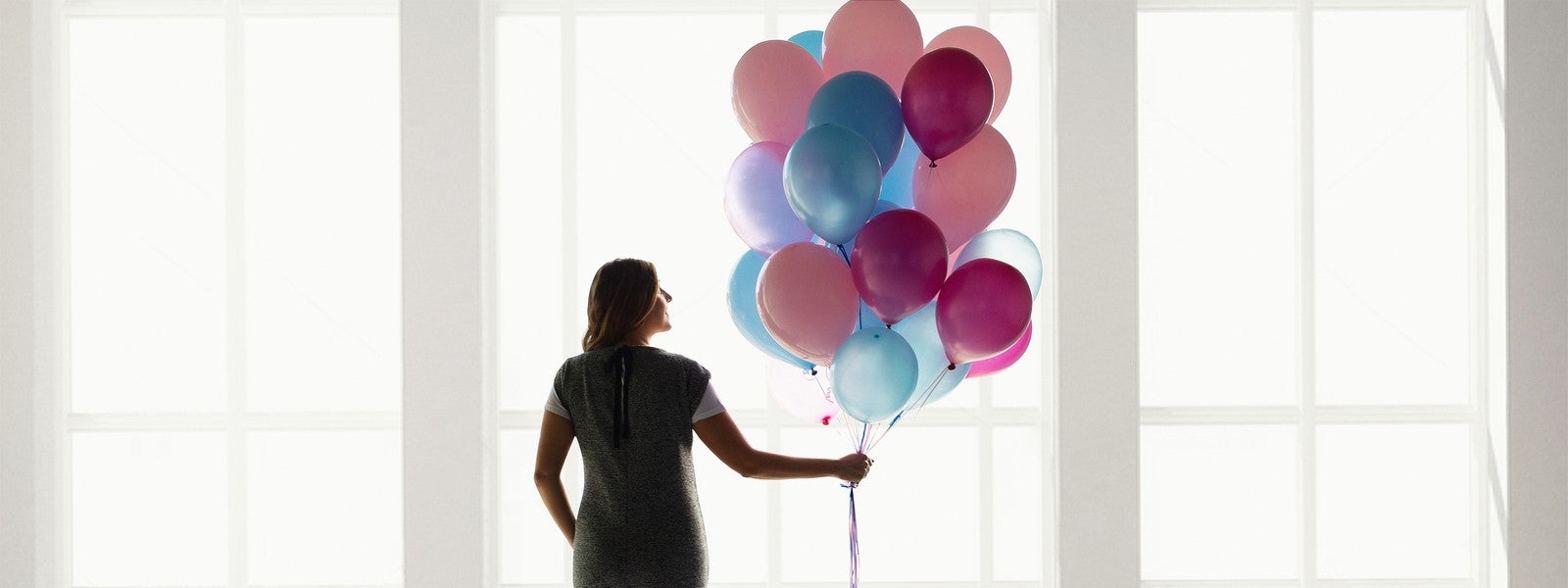
The Biggest Myths of Prenatal Pilates, Debunked
For many women, seeing a plus-sign on that fated pregnancy test is cause for celebration. But when you first hear that heartbeat a few weeks later, it’s not uncommon for some of that initial excitement to morph into worry and uneasiness. After all, it’s up to you to nurture that miniscule yolk sack into a full-blown human. No pressure.
Of all the things that might be anxiety-provoking during pregnancy, prenatal Pilates should not be on your list. To help quell any apprehension you might have—and keep you safe and feeling good throughout the next nine months—we’ve asked our experts to set the record straight on some the biggest Pilates-related pregnancy myths around.
Bottom line: Don’t worry, do Pilates!
MYTH 1: Pilates can potentially lead to miscarriage
“The baby is so protected in the mother’s womb that is it highly unlikely that a low-impact form of exercise like Pilates would cause a miscarriage. A very high percentage of miscarriages happen within the first trimester and are caused by chromosomal abnormalities—meaning the fetus was not viable from the beginning. The baby is protected with a lot of cushioning (i.e., fluid, uterine lining, mom’s organs and muscles), so even though a pregnant woman might feel fragile, her structure is not.” —Carrie Macy Samper, national Pilates training manager for Equinox
“Unless a pregnant woman has been told specifically by her doctor not to exercise because of another health issue, exercising during the early stages of pregnancy and throughout is beneficial for boosting mood, reducing stress, and giving a healthy source of energy rather that depleting you, exhausting you or leading you to worry about the health of your baby.” —Melissa Connolly, a Pilates instructor and Balanced Body faculty member
MYTH 2: Pregnant women shouldn’t do Pilates unless they’ve practiced Pilates before pregnancy
“Pilates is easily modified and accommodating for a pregnant woman’s body. The key principles within a Pilates workout help women maintain strength in a safe and effective way, whether they have done Pilates in the past or not. It would be helpful for a new prenatal client to take class from an experienced instructor.” —Connolly
“While this isn’t necessarily true, the Pilates you practice when you are pregnant is very different. When you are not pregnant and start Pilates, there is a deep emphasis on strong abdominal contractions and pulling your abdominals ‘in and up,’ and the goal is to go deeper as you progress. If you start Pilates and you are pregnant, that type of contraction and depth of connection in the core cannot be the focus—the core connection is more of a corseting support system rather than this deep initiator of movement. The workout also becomes more piecemeal (different body parts working) and less of the full-body connected movement that true Pilates is. So, Pilates can be great during pregnancy, but you can’t do the same Pilates that a nonpregnant person can.” —Samper
MYTH 3: The only benefit of prenatal Pilates is to help moms get back into shape after birth
“Completely false. There are so many benefits to regular exercise when you are pregnant—for the mother as well as the child. When a mother exercises regularly, epigenetic benefits are passed on to the baby. Epigenetic changes are when environmental factors affect whether a gene is expressed or not. The baby has a set genome from conception, but maternal exercise (an environmental factor) seems to positively affect the baby’s brain growth and development, among other things. Staying in shape (especially in the core and hips) also helps the mom prepare for the actual labor and childbirth. Plus, exercise helps you feel better in your body and lightens your mood, both of which are important when you are pregnant.” —Samper
“Pilates can also provide insight on body awareness and develop the strength, control and stabilization that helps with any aches or pains from pregnancy such as low-back or hip pain.” —Connolly
MYTH 4: Pregnant women shouldn’t do any core work
“Pregnant women should not do any core work that takes them from a supine position (lying on their back) and flexing their spine. However, it is actually beneficial for prenatal women to work on stabilization for the entire core. We can modify the supine abdominal work by propping up the pregnant woman with a wedge or changing the body position. Prenatal women do want to be careful not to overwork their core because it could possibly lead to diastasis recti.” —Connolly
“This is definitely not true! How do you think a woman pushes the baby out of her during childbirth? With positive thoughts? She needs core strength, hip strength and an understanding of how to ‘push from her abdominals’ in order to bring the baby out vaginally. Many women break blood vessels in their eyeballs because they push from their face instead of their powerhouse and/or doctors are forced to do a C-section or pull the baby out with a vacuum because the pushing isn’t enough. The appropriate way to ‘work your core’ when you are pregnant is focusing on the transverse abdominis as opposed to the rectus abdominis. Give up doing the Series of Five, and instead focus on corseting your waist while you do standing exercises.” —Samper
MYTH 5: Healthy, active mothers shouldn’t be limited in their Pilates practice
“There will always be a limit and a difference in your Pilates practice when you are pregnant. Many positions will just not feel good as you get further along in your pregnancy. Plus there are a lot of hormones circulating that affect ligaments and tendons and how much you should stretch or work. There is also a lot more fluid circulating in your body, so your heart has to work more, therefore you tire more easily. Pilates is amazing for pregnant women, but it will certainly look different!” —Samper
Comments
You need to be a subscriber to post a comment.
Please Log In or Create an Account to start your free trial.

